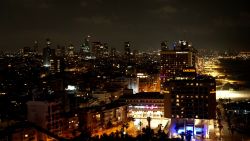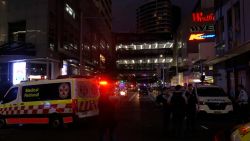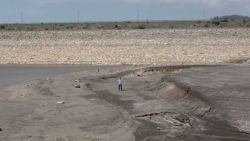Colombia’s presidential election will head to a runoff next month, since no candidate won 50% of the vote Sunday.
With 99.9% of polling stations reporting on Sunday, conservative Ivan Duque was leading with 39% of votes. In second place was leftist Gustavo Petro with 25%, closely trailed by centrist Sergio Fajardo.
The election is seen by some observers as a referendum on the country’s peace deal with FARC rebels.
Six candidates were vying to fill the seat left by departing President Juan Manuel Santos, who was awarded the 2016 Nobel Peace Prize for his efforts to end the long-running civil war between his government and guerillas from FARC, or the Revolutionary Armed Forces of Colombia.
Under the deal, the rebels agreed to lay down their arms, exit the jungle and pursue their aims via politics rather than guerrilla warfare.
The frontrunners in the election to replace Santos couldn’t differ more on the peace deal. Left-wing Petro supports the deal and blames former President Alvaro Uribe for the turmoil wrought by FARC, while Conservative Duque has taken tough stances against FARC and openly opposes the deal.
In comments made after the announcement that he had won the highest number of votes, Duque addressed his opposition to the deal.
“We do not want to tear up the agreements,” he said. “What we want is to make clear that a peaceful Colombia is a Colombia that is where peace is found through justice, where there is truth, there are reparations, and punishments are served.”
Uribe has endorsed Duque. Santos has not issued an endorsement.
The runoff vote will be held June 17. Other important issues include unemployment, healthcare and corruption.
Though there have been isolated incidents of violence related to the election, they have been minimal, likely owing to the dismantling of FARC and the Defense Ministry deploying 240,000 troops to ensure safety during the election process.
About 12,000 election observers are in place, and the Organization of American States has contributed 78 monitors to ensure the integrity of the process.
More than 36 million Colombians were eligible to vote in the election, including more than 800,000 expatriates voting from 69 countries.
Here are the six candidates who were running:
- Humberto de la Calle, 71, was backed by a coalition between the Liberal Party and Indigenous Social Alliance. A former vice president and interior minister, he was tapped by Santos to serve as chief negotiator with FARC during the peace process.
- Duque, 41, of Uribe’s Democratic Center Party, served as a senator for four years and as an adviser to the Finance Ministry and the Inter-American Development Bank. He also is a professor and writer, who co-authored the book, “The Orange Economy.”
- Fajardo, 61, a mathematician and member of the conservative Colombia Coalition party, is the former governor of the department of Antioquia in northwest Colombia and former Medellin mayor.
- Petro, 58, is a former guerilla and an economist who founded the Progressive Movement ahead of his run for mayor of Bogotá, an office he won in 2011. Formerly a member of M-19, another guerilla group that became a political party, Petro has served three terms as a congressman and one as a senator.
- Germán Vargas Lleras, 56, is a center-right candidate backed by his own Radical Change party. He was vice president under Santos, won four terms as senator and served as interior minister and minister of housing, city and territory.
- Jorge Antonio Trujillo is a candidate with the We Are Colombia party. A Christian pastor with a doctorate in theology, he served as senator between 2006 and 2010.
CNN’s Chandler Thornton and Taylor Barnes in Atlanta and journalist Alessandro Rampietti in Bogota contributed to this report.

















